
Navigating the IndusWater Treaty: India’s Hyper-Nationalism and Pakistan’s Water Security Challenges
April 30, 2024
PRESIDENT
Air Marshal Asim Suleiman (Retd)
SEMINAR COORDINATOR
Dr Bilal Ghazanfar
MASTER OF CEREMONY
Meher Azfar Rana
Executive Summary
A seminar titled “Navigating the Indus Water Treaty: India’s Hyper-nationalism and Pakistan’s Water Security Challenges” was organised by the Centre for Aerospace and Security Studies (CASS), Lahore on 30 April 2024. The discussion commenced with the keynote address by Eng Suleman Najib Khan, convener of the Water Resource Development Council. It was followed by insightful presentations by two experts, Mr Ahmed Rafay Alam, a renowned environmental lawyer, and Dr Hasan Abbass, an eminent hydrologist. An extensive Q&A session and concluding remarks by Air Marshal Asim Suleman (Retd), President, CASS Lahore, rounded up the seminar.
In his Introductory remarks, Dr Bilal Ghazanfar discussed the Indus Water Treaty and its significance for Pakistan’s water security concerns. He highlighted that rising Indian nationalism coupled with environmental risks a concern for the Indus Water treaty and major threats to regional stability. He added that the Indus Basin is crucial for Pakistan, and disruption to the treaty could cause severe security issues for Pakistan. In addition, he stressed finding solutions for a sustainable water future through cooperation between Pakistan and India.
Eng Suleman Najib Khan, in his comprehensive keynote address, spoke about the Indus Water Treaty and the challenges faced by Pakistan. He highlighted the importance of water resources and called for a holistic approach to water management. He advocated for the reorientation of WAPDA and called for accountability regarding the flawed dam designs which in terms of security and economy are not viable for Pakistan. He emphasised the importance of sustainable infrastructure and advocated for the Karabagh Dam construction. While mentioning environmental concerns, he raised concerns about the melting of the Tibetan plateau and the lack of awareness about the water crisis in the region.
The second speaker of the day, Mr Ahmed Rafay Alam shifted focus to the legal aspects of the Indus Water Treaty. He said the Indus Water Treaty is a vital document that prevents both nations from resorting to war. The treaty divides the rivers of the Indus system into eastern and western rivers. India was granted unrestricted access to the eastern rivers while being obligated to allow the flow of water from the western rivers to Pakistan. Mr Alam highlighted that the greatest threat to water resources is not the construction of infrastructure but rather climate change. Cooperation is paramount in addressing these challenges.
The third speaker of the day, Dr Hassan Abbas said the Indus Water Treaty is not a real treaty but an annexure to a funding agreement. Pakistan lost control over Eastern rivers and got less favorable terms compared to the initial proposal. The Indus River system is unique and requires its solutions. Dr Abbas noted that Pakistan should focus on utilising natural aquifers and solar power instead of building dams. He said that the Rajasthan Canal project in India was a failure and that Pakistan should revisit the Indus Water Treaty based on environmental and ecological concerns. He believed that the Western world would be receptive to the environmentally driven normative concerns of Pakistan.
The Q&A session delved into the aspects of the Indus Water Treaty and water resource management of Pakistan. In answers to the questions asked speakers highlighted that India is diverting too much water from the Indus River and its tributaries, which are essential for Pakistan’s agriculture. Pakistan needs to revive river navigation on the Indus River to improve trade with Afghanistan and Central Asia. Eng Suleman argued for taking necessary actions even in the absence of consensus and prioritising national interest. Both speakers believed that telemetry data sharing and better data management are crucial for effective water management. Dr Abbas mentioned that Pakistan has an advantage in groundwater resources and should focus on utilising them for agriculture and trade.
In his concluding remarks, Air Marshal Asim Suleiman (Retd) reaffirmed Pakistan’s steadfast dedication to upholding the fundamental principles enshrined within the Indus Water Treaty. He emphasised that as Pakistan’s eastern neighbour, India shares the responsibility for maintaining peace in the region. Therefore, he urged India to reaffirm its solemn commitment to international agreements and cautioned against any unilateral measures that could potentially jeopardise the Treaty’s integrity. Furthermore, he said that international institutions that played a pivotal role in formulating the Treaty must step forward to safeguard its sanctity and ensure its continued efficacy.
Guest Speakers
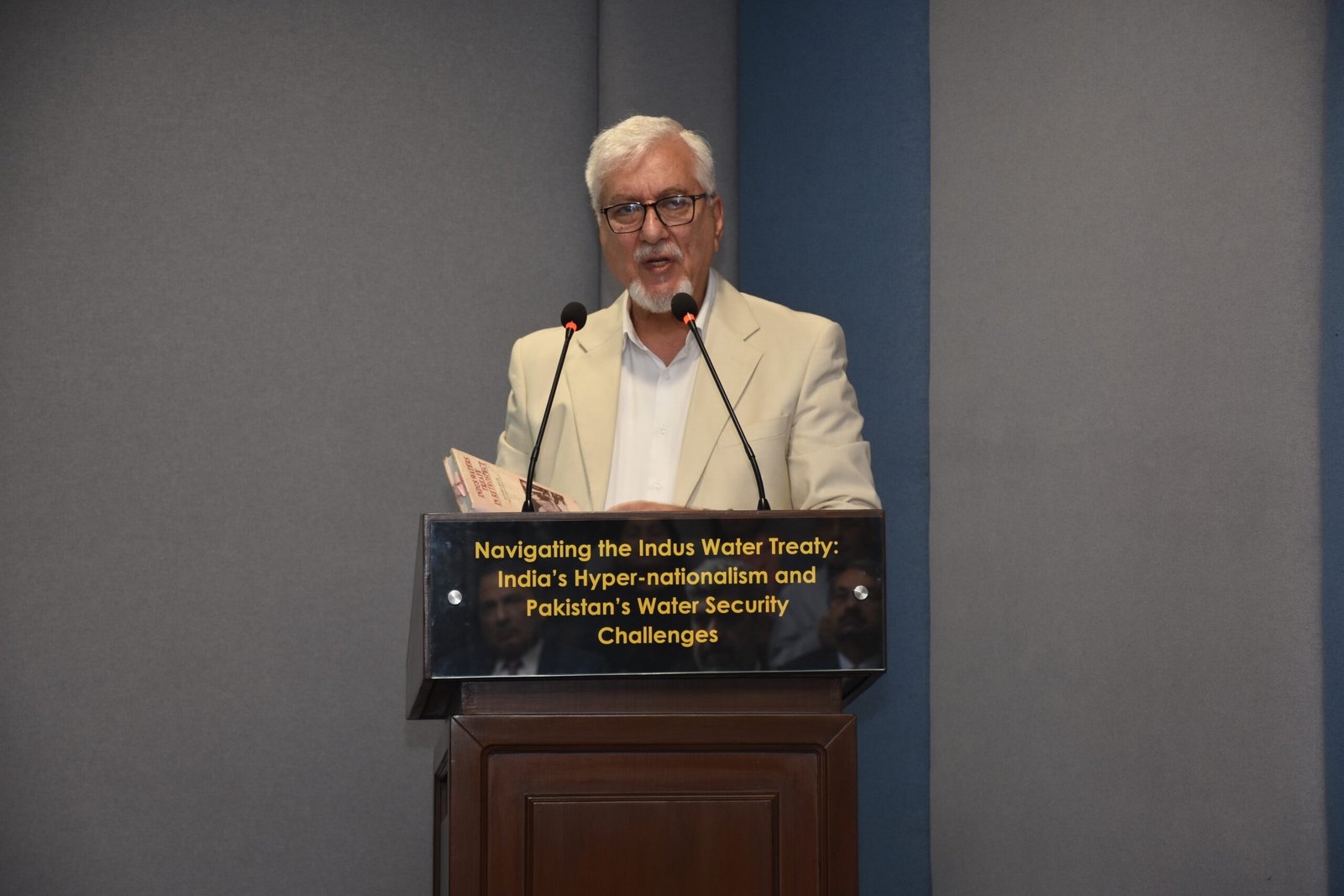
ENG Suleman Najib Khan
Convener, Water and Resource Development Council
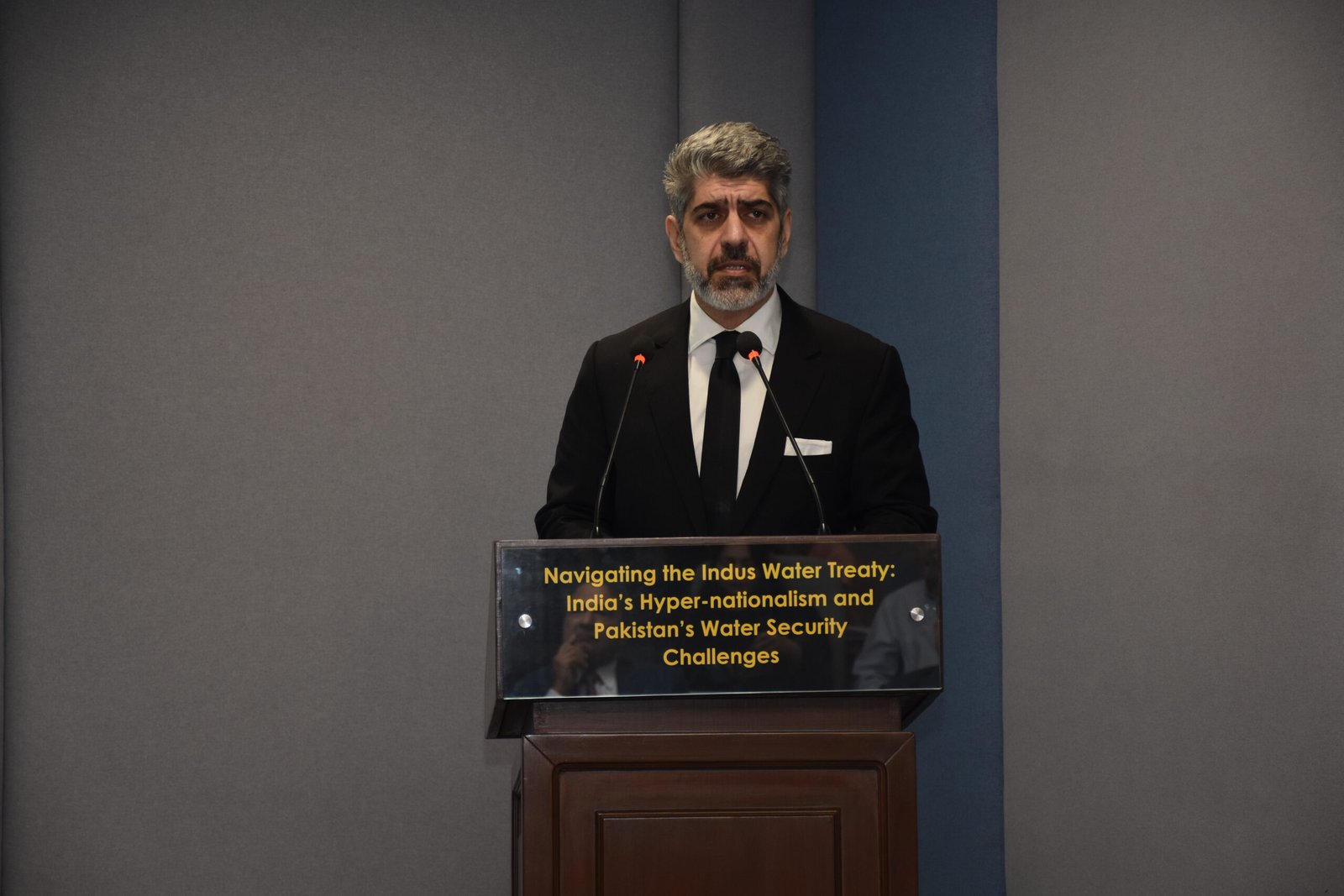
Mr Ahmad Rafay Alam
Environmental Lawyer & Activist
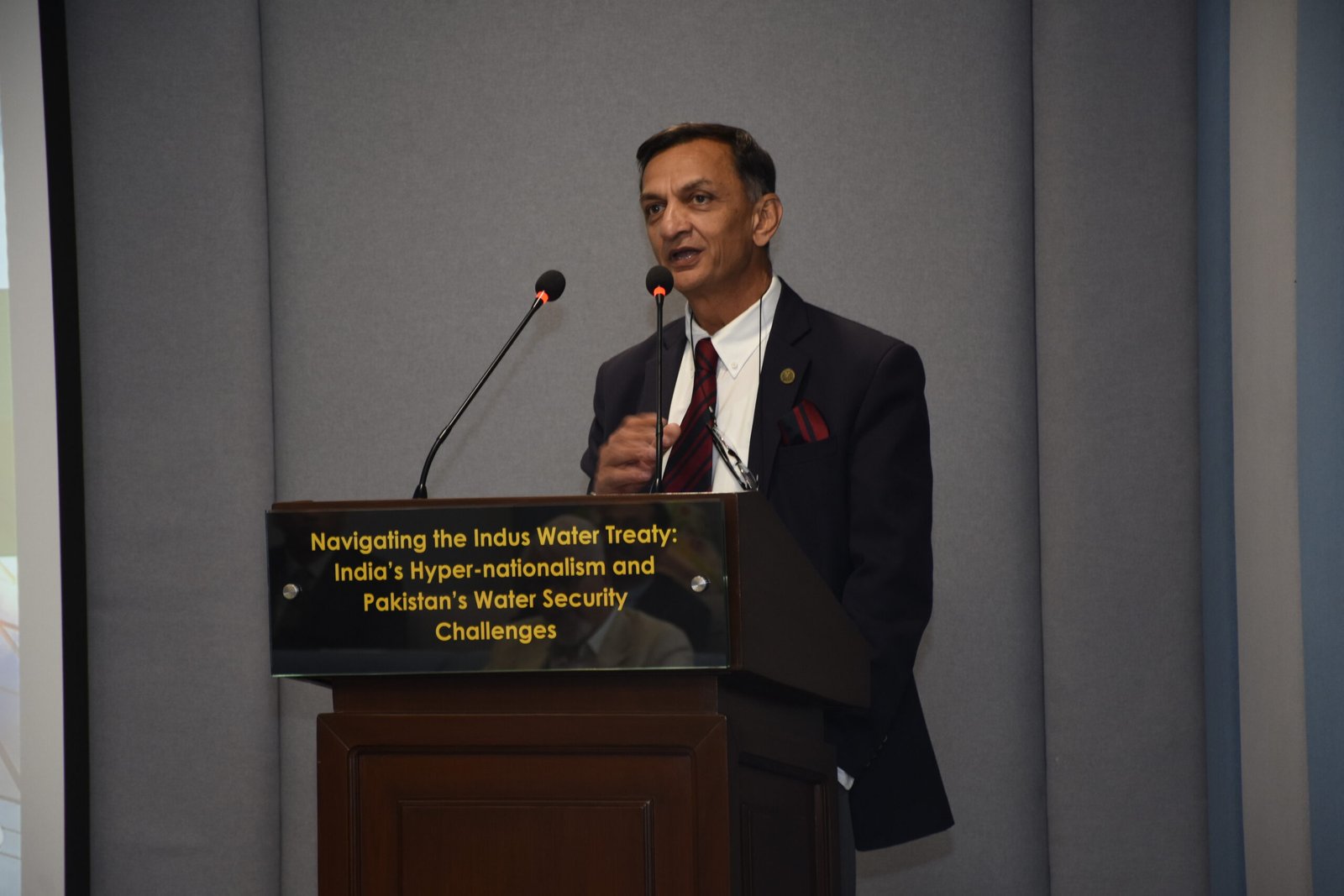
Dr. Hassan Abbas
Founding Chairman Zizak (Pvt) Ltd
CASS Speakers
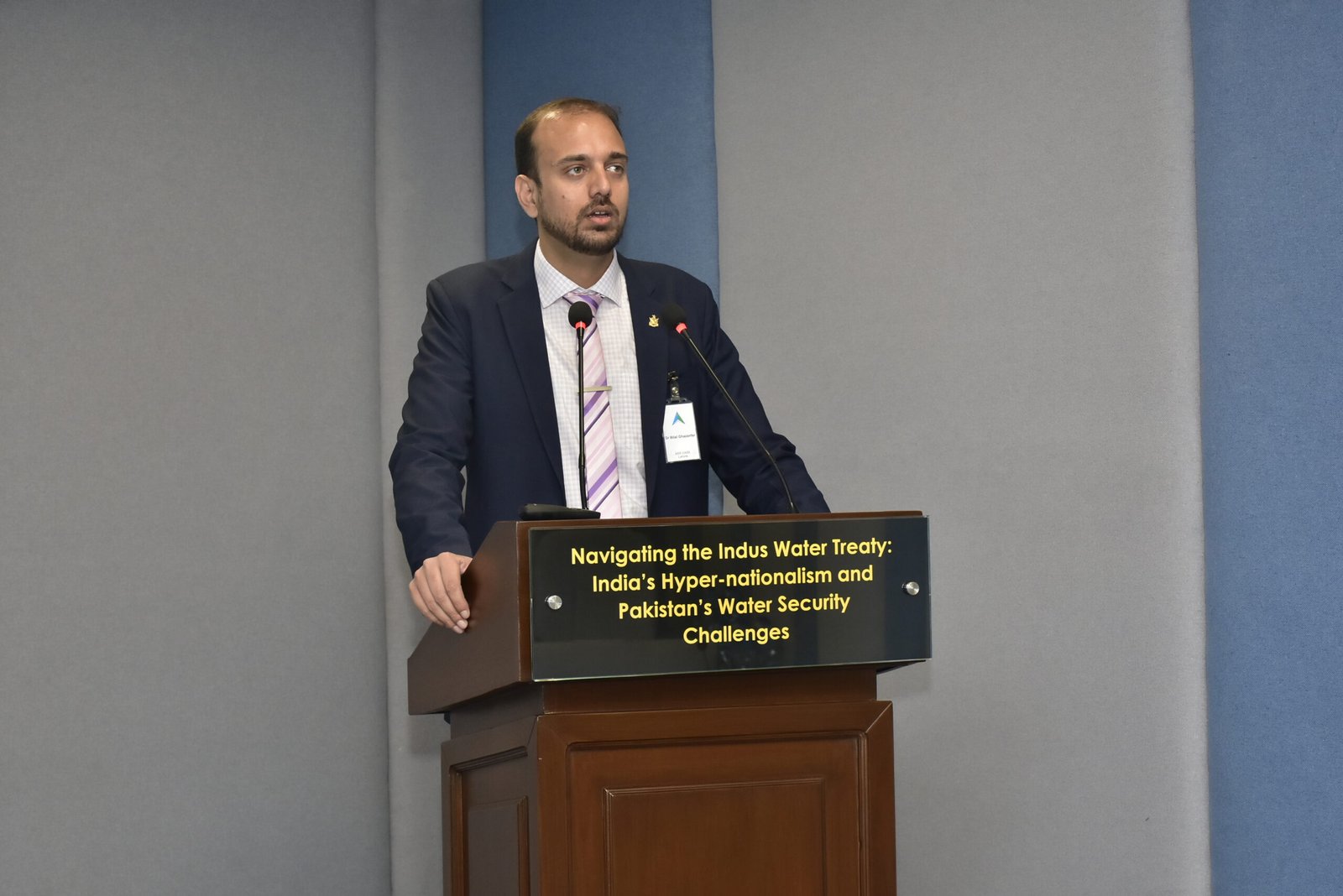
Dr Bilal Ghazanfar
Associate Senior Researcher, CASS Lahore
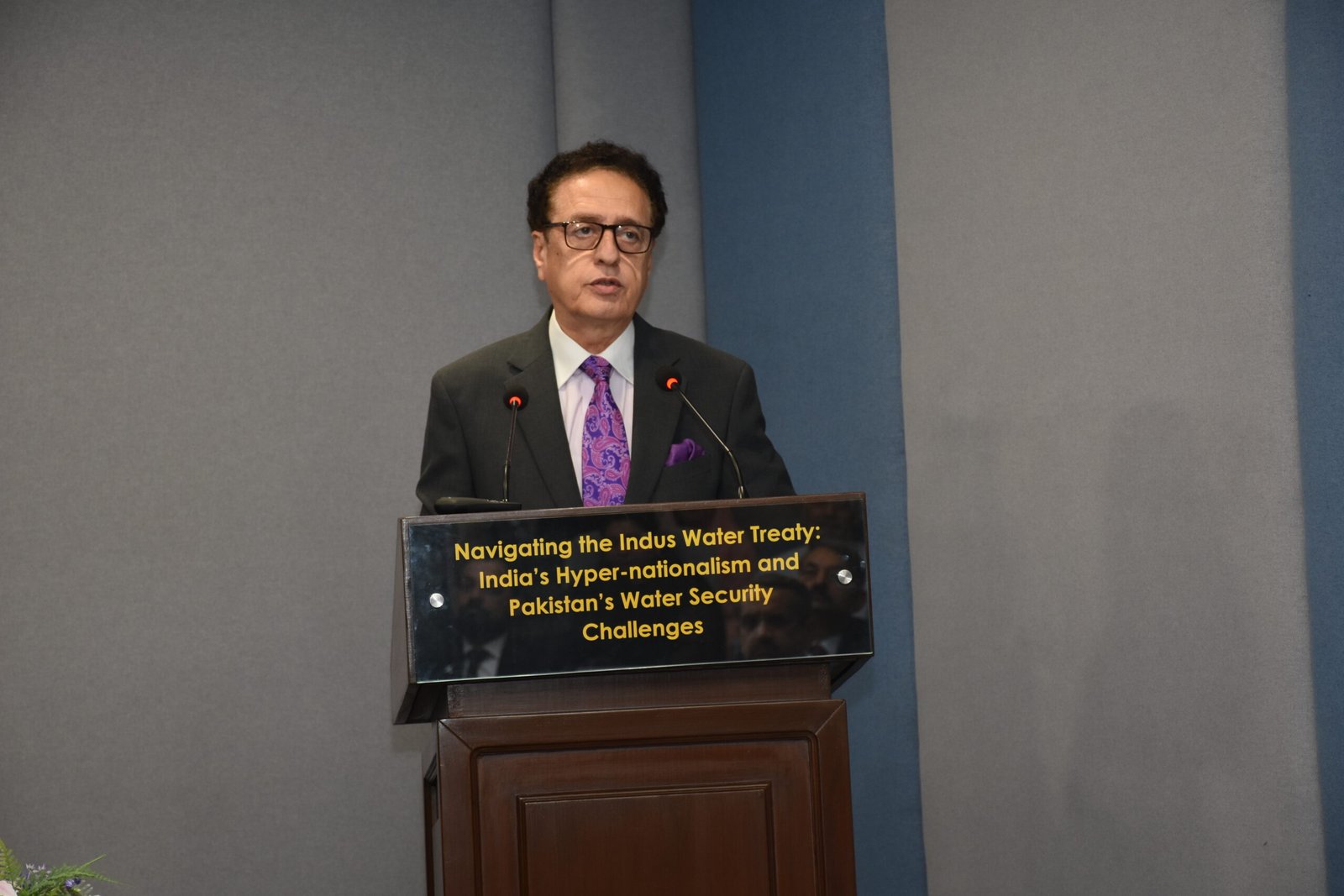
Air Marshal Asim Suleiman (Retd)
President, CASS Lahore
CASS LAhore

The Centre for Aerospace & Security Studies (CASS) was established in July 2021 to inform policymakers and the public about issues related to aerospace and security from an independent, non-partisan and future-centric analytical lens.


